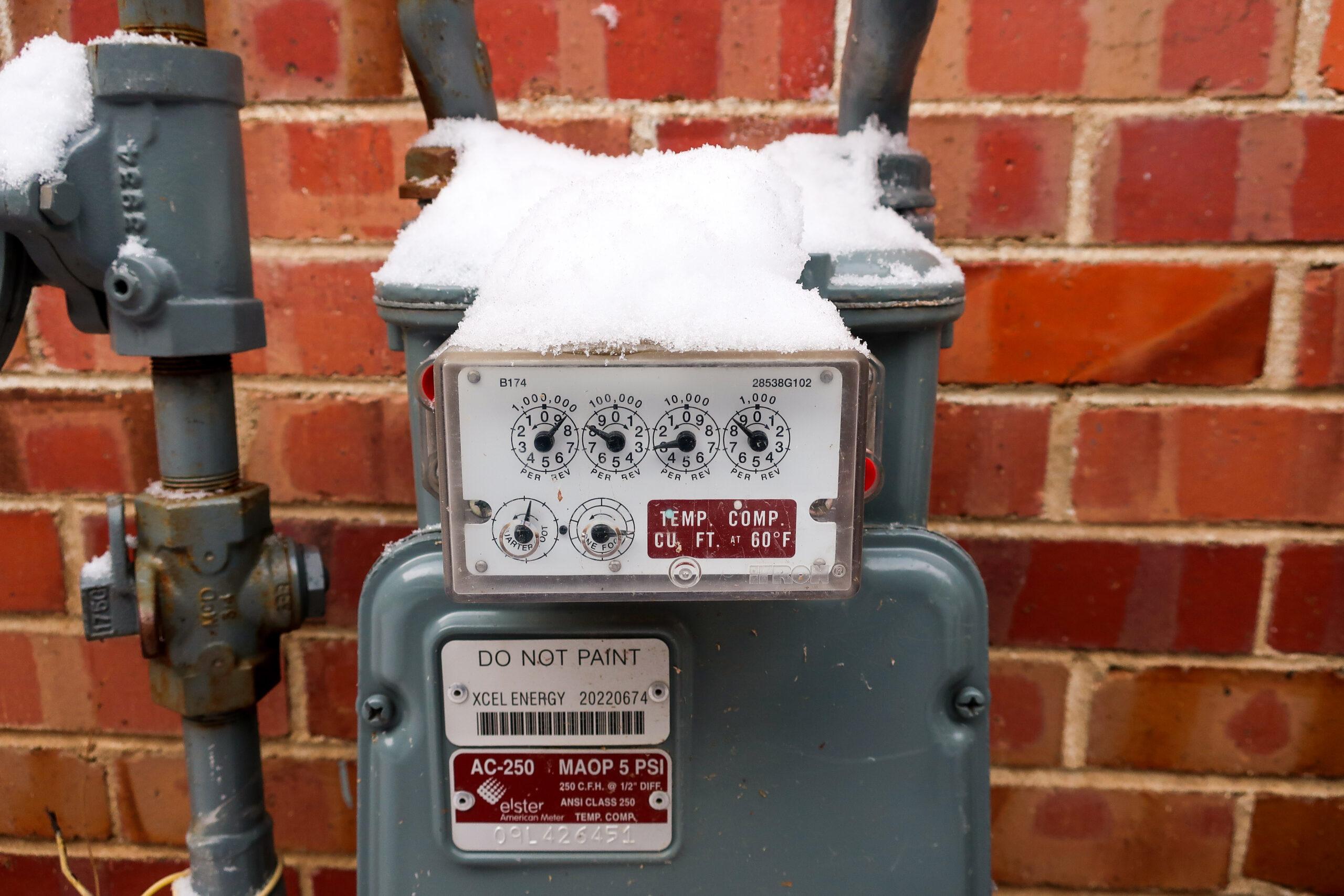
Xcel Energy customers could see their monthly gas bills drop by as much as 15 percent in February and March, according to a new cost adjustment plan approved by state regulators on Monday.
The relief is mainly due to falling natural gas prices. And it comes as Xcel faces criticism over high heating bills and record profits.
Under Xcel’s new plan, the average homeowner’s bill should decrease by about $18 a month. Small brick-and-mortar businesses will see bills drop about $84, depending on their usage.
“Colorado customers will see lower natural gas bills than previously expected as a result of a recent decrease in wholesale natural gas prices,” the company said in a statement.
The temporary adjustment comes after several months of sky-high bills, which Xcel has blamed on market forces beyond its control. For many customers, monthly energy costs have more than doubled from a year ago.
Cindy Schonhaut, the director of the Colorado Office of the Utility Consumer Advocate, said the decrease is welcome but not nearly enough to help ratepayers who’ve fallen behind on their bills.
She added the price cut is not due to any proactive action from Xcel Energy or the Colorado Public Utilities Commission.
“They don't have control over gas commodity prices,” Schonhaut said.
And consumers say they’re at a breaking point.
At a public hearing hosted by the PUC on Tuesday, more than 40 people signed up to share their frustrations about high bills and plead with leaders to take action to help consumers.
Flor Alvidrez, a Denver resident and real estate agent, said she’d been fielding calls from clients nonstop asking her what was going on with energy prices.
“They’re in distress,” Alvidrez said. “We have to heat our homes. A lot of people I know are on payment plans. And now they’re getting bigger bills and adding even more to that.”
Maury Cohen, another resident from Denver, said some of her neighbors could no longer afford their monthly heating bills. Some had price tags around $300.
“There are people in third-generation homes and they don’t know what they can do,” Cohen said. “People are looking at downsizing.”
Many attendees also called attention to Xcel’s record profits in 2022.
Last week, the company reported it had earned its shareholders $1.74 billion over the year, a 8.7 percent increase over the previous year.
“This is a utility making huge profits and doubling and tripling our bills,” Cohen said. “It just doesn’t make sense how this is ok.”
The company has tried to remove profits from the debate on rising energy bills.
According to Xcel’s financial reports, Colorado remains the company’s most profitable service territory, contributing 41 percent of the earnings per share over the year. Minnesota, its next large service territory, contributed 38 percent last year.
In previous interviews with CPR, Xcel Energy executives have noted rising natural gas prices are the main factor driving up household energy costs. The company passes those costs directly to customers without charging an additional profit for its shareholders.
In fact, Xcel Energy isn’t allowed to turn a profit on any day-to-day operating costs. Since the state grants the company a competition-free monopoly, it can only collect extra revenue on infrastructure investments, like new transmission lines, power plants or wind farms.
The Colorado Public Utilities Commission sets the rate of return through a process called “base rate increases,” which are extra fees baked into monthly energy bills.
In most cases, the company can recoup the cost of capital projects plus another 9 to 10 percent for its shareholders through those fees, said Schonhaut with the Colorado Office of the Utility Consumer Advocate.
That means Xcel’s profits aren’t divorced from the debate over rising energy bills, she argued.
That’s because the process gives the company an incentive to propose expensive infrastructure projects, which can help maximize profits for its shareholders, she said.
Her office has often pushed regulators to pare down some of its proposals — like a recently approved $1.7 billion transmission line — to protect ratepayers from longterm bill increases.
But regulators have tended to approve most of Xcel’s plans anyway, Schonhaut said. The result has been a steady rise in base rates, which is how the company recovers the cost of its investments and earns profits for its shareholders.
“Xcel Energy’s base rates have doubled in the last 15 years,” Schonhaut said. “That’s astounding, and it doesn’t have to do anything with inflation. It has everything to do with greed and profit.”
An analysis from PUC staff released last week analyzed the recent spike in utility bills paid to Xcel Energy. It found an average household saw its total gas and electricity costs rise $87 from December 2021 to December 2022.
According to the analysis, about 70 percent of the increase is due to both rising gas commodity prices or higher energy usage due to cold weather. Another 16 percent can be attributed to rate base increases, which have been reviewed and approved by state regulators over the last few years.
Xcel’s natural gas cost adjustment this week is an unusually high pull back for rates compared to past requests, said Erin O’Neil, the PUC’s chief economist.
“We’re still high,” she said. “But this is definitely going to be a substantial decrease in customers’ resulting bills.”
Smaller utility companies in the state, such as Black Hills Energy, have also requested rate decreases similar to Xcel’s, O’Neil said.
Volatile gas markets have moved prices dramatically
Since Xcel purchases natural gas from wholesalers, its rates are dependent on a largely unregulated market. By law, the utility can pass off fluctuations in commodity prices to consumers through periodic requests with the state’s Public Utilities Commission.
Natural gas prices jumped to their highest point in 14 years last fall due to global supply disruptions brought on by the war in Ukraine. In the months since, the market has cooled off, mostly thanks to increasing U.S. production capacity and lower-than-forecasted demand this winter.
That slowdown paved the way for this week’s rate decrease, said Rob McBride, a director of commercial strategy at Enverus, a Denver-based energy market analytics firm.
The stabilization is expected to continue into 2023, which could bring more relief for Coloradans struggling with higher energy bills on top of spikes in food costs and other everyday expenses, he said.
“The market has really turned on its head,” McBride said. “We had a panic and now we’re seeing that panic subsiding, especially since we’re looking ahead to spring when (gas) demand is lower usually.”
Despite the temporary relief, Colorado energy bills could continue to increase in the long run due to future base rate increases.
Xcel Energy applied for a $262 million electric base rate increase last November. It awaits consideration before the commission. During an earnings call with investors last fall, Xcel Energy CEO Bob Frenzel told shareholders it will likely ask Colorado regulators for another gas rate increase sometime this year.
It’s unclear whether regulators will continue to oblige the company. Last year, the company asked the PUC for a $188 million gas rate increase spread over three years. The panel ended up only approving a $64 million rate hike.
Attendees of Tuesday’s public comment hearing asked commissioners to deny any future base rate increases.
“People can’t take it. There’s no justification,” said Cohen, the Denver resident. “In fact, I’d like you to think about rescinding their natural gas increase from a few months ago.”









